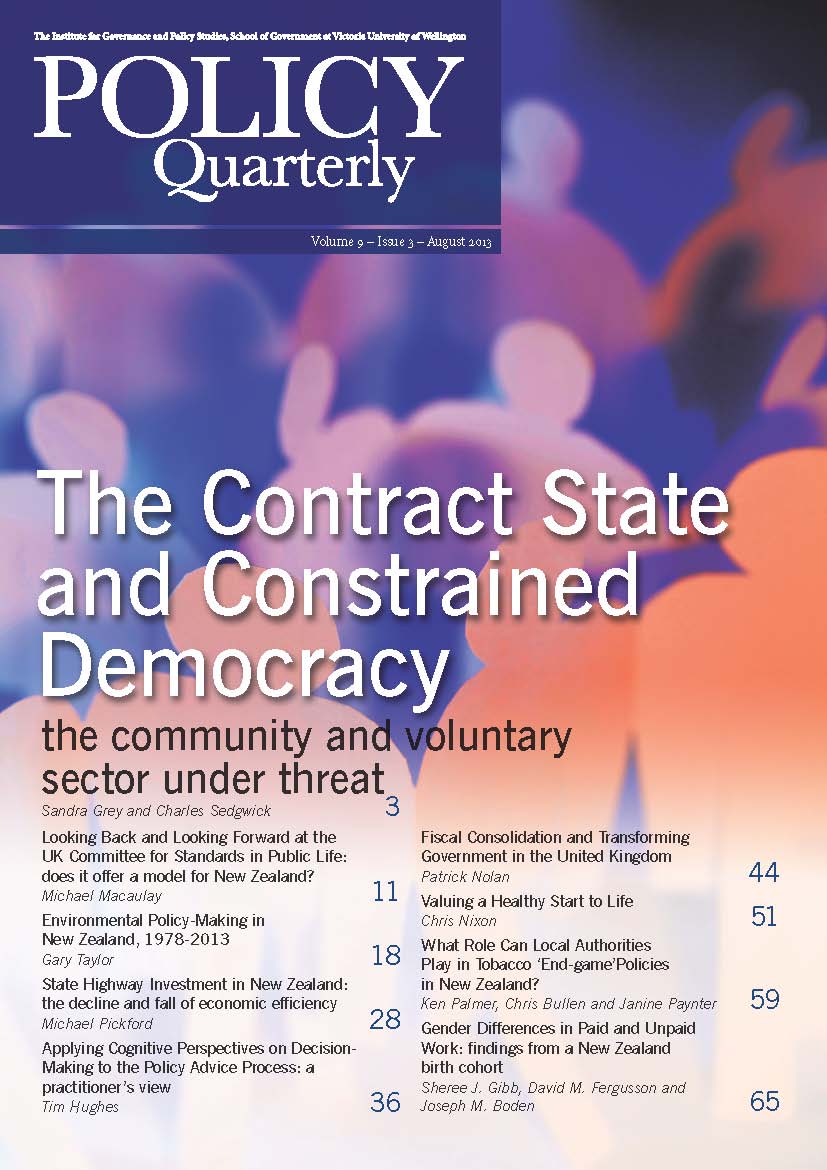The contract state and constrained democracy: the community and voluntary sector under threat
DOI:
https://doi.org/10.26686/pq.v9i3.4702Keywords:
society’s unmet needs and preferences, democratic voice, NGOs, fear losing funding, ‘equal’ relationshipAbstract
There is a long-standing acknowledgement by the public, government and academics of the essential democratic role of the community and voluntary sector. The sector is acknowledged as a conduit to government of information on society’s unmet needs and preferences (Maddison, Denniss and Hamilton, 2004, p.vii). As Salter observes, organisations ‘working at the grass-roots or flax roots level … become aware of trends and emerging issues earlier than the government. In short it is difficult to argue that such groups are not essential to any modern state’ (Salter, 2004, p.9). In New Zealand this role has been acknowledged in law since the mid-19th century and is referred to in a range of recent government documents (see Ministry of Social Development, 2012; Office for the Community and Vountary Sector, 2008; Cabinet Office, 2011). But it is not unchallenged. This article examines how the changing relationship between the state and the community and voluntary sector has resulted in the democratic voice of the sector being heavily constrained.
Downloads
Downloads
Published
Issue
Section
License
Permission: In the interest of promoting debate and wider dissemination, the IGPS encourages use of all or part of the articles appearing in PQ, where there is no element of commercial gain. Appropriate acknowledgement of both author and source should be made in all cases. Please direct requests for permission to reprint articles from this publication to Policy-Quarterly@vuw.ac.nz.



